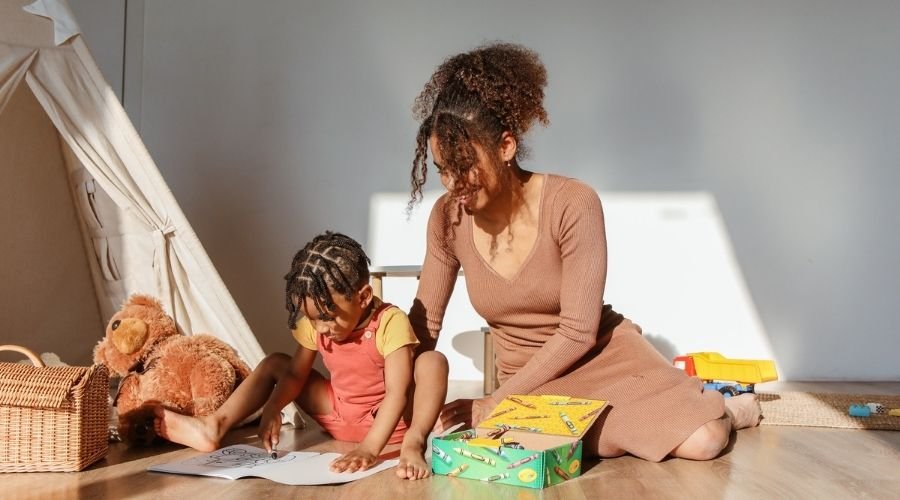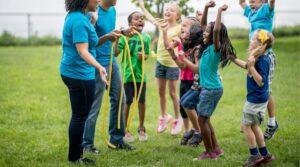Preschoolers love to play and are naturally eager to learn new things—qualities you can use to your advantage to expand their world and have fun together at the same time!
Here are some ideas that will help you turn your home into the ideal support for your little student.
Organize your day
If your child is about to start preschool or you want to reinforce what they already know, routines are a must. Routines help toddlers and preschoolers channel their energies and serve as a foundation for learning about hygiene, self-control, and more. They also produce a sense of trust, security, and stability that your children need to overcome stressful situations.
- Limit the amount of television and other electronic devices.
- If possible, involve the whole family in the activities.
- Organize different activities during the day to avoid boredom (keep on reading for ideas!).
- Have a positive learning attitude. It will help your children learn faster and encourage their curiosity.
- Don’t forget to schedule breaks and naps!
Turn games into your greatest allies
Games are a great way to explore a wide variety of topics and emotions while keeping your child engaged in the learning process. There are different types of games to achieve different learning objectives.
Constructive play: games in which children use materials, such as blocks, paper, play dough, or crayons, to build or represent things. Crafts stimulate imagination, pattern recognition, and fine motor skills. These skills are essential for writing later in life.
Physical activities: Such as running, jumping, catching, and even dancing to their favorite song. These are games designed to develop coordination while helping your children strengthen their bodies. Also, they are great ways to channel your children’s energy, reduce anxiety and improve their sleep.
Pretend play: Costumes, dolls, toy food, and more help your children use their growing thinking skills to learn about symbols, situations, and problem-solving. Other activities, such as pretending to be animals or imitating sounds together, are great for memory.
Outdoor play: Exploring with your children is a great way to apply what they learned from other games in a real-life scenario, spark their interest in the environment, and build self-confidence. Children who play outdoors are less likely to be injured when engaging in outdoor activities in the future. And since they will most likely ask you about things that catch their attention, this could be the perfect opportunity to tackle complicated topics.
Literary activities: Your children probably don’t know how to read yet, but their natural curiosity will make them feel attracted to books… especially if they see you reading often! Encouraging early reading through stories, questions and riddles will have a positive impact on your children’s vocabulary and comprehension skills. Look for books with repetitive phrases, let them fill in a few words as you read, and try turning signs or posters they see every day into games.
Have fun together!
These activities work fine on their own but can do wonders when applied together. For example, why not pick a day of the week to read a book and then try to reenact the story together? You can use materials such as fabric and cardboard to build costumes, head to the park and then act out as your children’s favorite characters. Without realizing it, they will be learning valuable skills in a fun way.
The Value of Traditional Preschool Education: A Comparative Analysis
We believe in the power of hands-on, interactive learning experiences,...
Read moreEmbrace the Adventure: The Benefits of Sending Your Kids to Summer Camp
Embrace the Adventure! At Small Feat Preschool, we believe in...
Read moreUnderstanding Child Neurodevelopment in Toddlers
Children experience significant brain development from birth to age three,...
Read morePreparing Your Child for Pre-K: Essential Parenting Tips
To ensure a smooth transition, here are some essential parenting...
Read more




